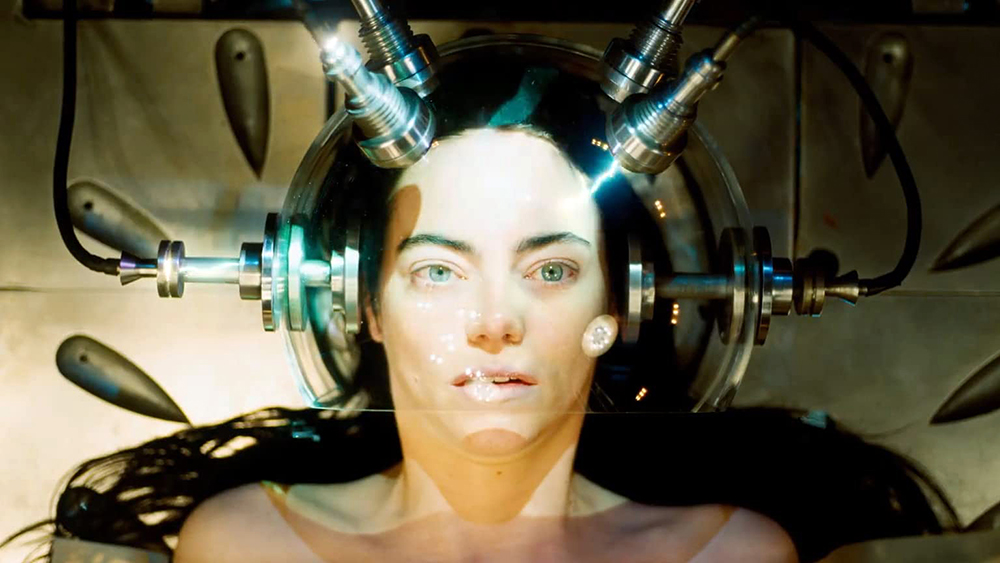Mary Shelley’s novel Frankenstein; or, The Modern Prometheus, is regarded as the first true science-fiction novel. Shelley’s themes and tropes have echoed for more than two centuries: The brilliant scientist is so consumed by the intellectual challenge of discovery that he doesn’t consider the costs; the question of what, exactly, it means to be “human”; and even Stan Lee’s mantra, “With great power comes great responsibility.” Recent readings have emphasized Shelley’s personal life to explain its unsettling tone. The story’s mixture of horror and fascination with the creation of new life came from an author whose mother had died in childbirth and who personally had multiple miscarriages, and buried two babies before their third birthday.
In Shelley’s original novel, the Creature is not the hulking figure with an abnormal brain and limited vocabulary, familiar from the Universal horror films. He is intelligent enough to recognize his own monstrosity, and cunning enough to plot complex revenge on his creator. The novel’s middle passage, told from the Creature’s POV, presents a critique of humanity’s hypocrisies from an outsider’s perspective.
Yorgos Lanthimos’ Poor Things remixes the Frankenstein elements to foreground the outsider perspective, with spectacular results. Emma Stone stars as Bella, whom we meet as she is throwing herself off a bridge. Dr. Godwin Baxter (Willem Dafoe) is a Frankenstein-esque surgeon who carries the scars of his own father’s brutal experiments on his face. He finds Bella’s body in the river while it’s still warm — and discovers the fetus she is carrying in her womb is still viable. He repairs her lightly damaged body and implants the baby’s brain in her skull. When he reanimates her with “galvanic energy,” she awakens an infant’s mind in an adult’s body.
Dr. Baxter locks his subject in his stately mansion, both to keep her secret from the torch-and-pitchfork crowd who can’t understand his genius and to control this grand experiment into the nature of humanity. He hires one of his most gifted medical students Max McCandles (Ramy Youssef) to record Bella’s every move and chart her development. But Baxter (or “God” as Bella calls him) can’t keep her a secret forever, and she attracts the attention of his attorney Duncan Wedderburn (Mark Ruffalo) right around the time she discovers sex — or as she calls it, “furious jumping.”
Baxter knows he can no longer stop her from experiencing the world, so he grudgingly consents to Bella running off with the worldly attorney. They embark on a comedically debauched tour of a steampunk version of Victorian Europe, where dirigibles roam the skies and architecture runs amok. Bella continues the pattern of outgrowing one mentor after another as she tries to forge her own identity and correct the wrongs of the world.
Stone’s always been a trouper, but she is absolutely fearless as Bella. In a career-high performance, she finesses Bella’s growth from peeing on the floor to debating philosophy, progressing ever so slightly from one scene to the next until she’s the one performing experimental surgery. It’s an extreme performance, but Lanthimos directs everyone around her so big, Bella seems like the most grounded person on screen. Ruffalo looks like he’s having the time of his life as the rakish Wedderburn, who awakens something in Bella no one can control. Dafoe is so matter-of-fact in his deranged sociopathy that you find yourself instinctively nodding along to even his most outrageous pronouncements. Kathryn Hunter, who stole the show as the witches in Joel Coen’s The Tragedy of Macbeth, slithers and shines as a brothel madam who takes Bella under her tattooed wing.
With a visual palette wild enough to match the story’s shenanigans, Lanthimos has created a fresh and daring film about what it means to be both a human and a woman. As Bella searches for answers about existence, her crazy world starts to feel awfully familiar.
Poor Things
Playing at Malco Theatre locations beginning December 22nd
